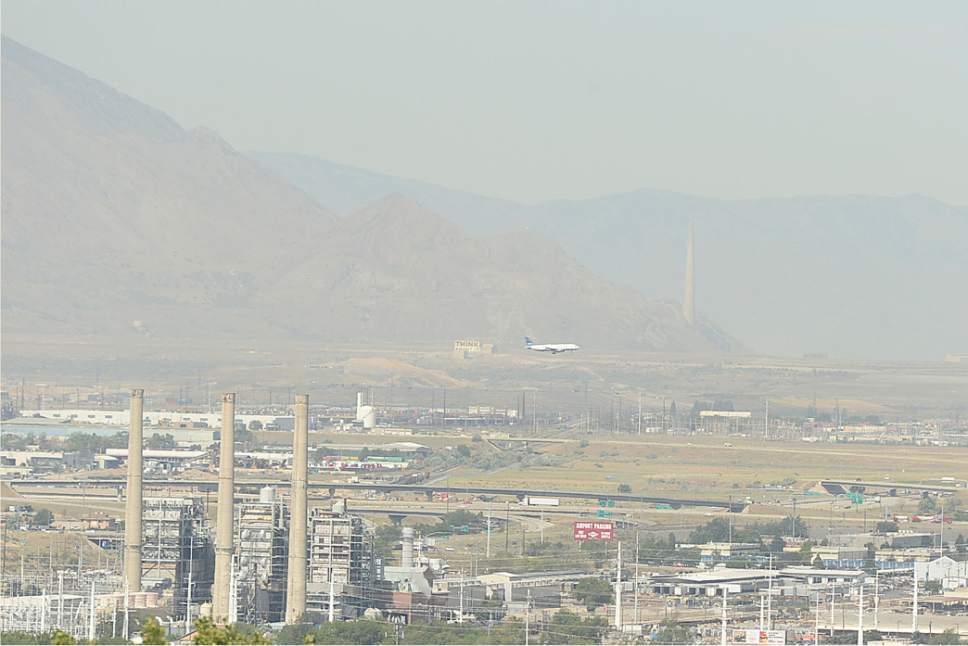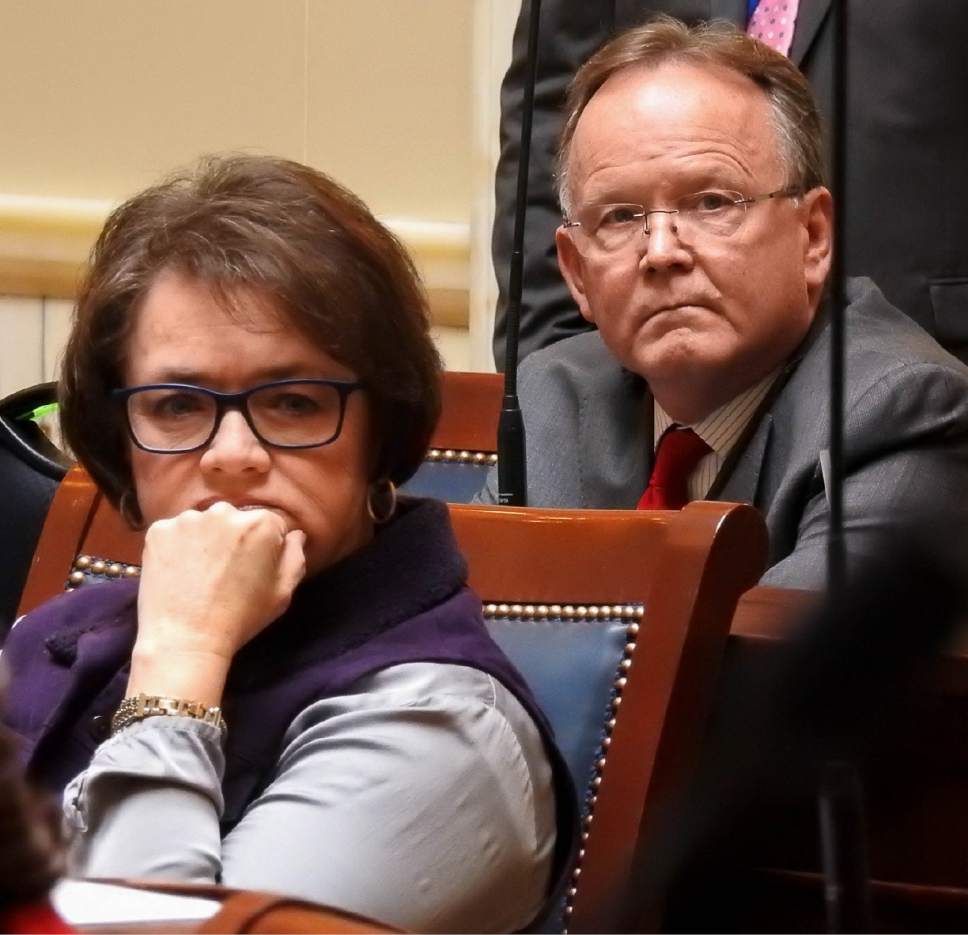This is an archived article that was published on sltrib.com in 2017, and information in the article may be outdated. It is provided only for personal research purposes and may not be reprinted.
A proposal to bolster Utah's manufacturing sector through a $60 million tax break turned into a clean-air initiative Tuesday after lawmakers swapped out a bill on the Senate floor.
The new version of SB197 would cost the state roughly $1.8 million in sales tax revenue, used as an incentive for refineries that move toward the production of Tier-3 fuel.
"It's probably one of the more significant air-quality bills we can deal with," said Sen. Stuart Adams, R-Layton, the bill's sponsor.
Senators gave preliminary approval on Monday to the original version of the bill, which would have expanded an existing manufacturing sales tax credit to include equipment with an economic life of three years of less.
Adams said that proposal is still good tax policy, but its large price tag has been a sticking point as Utah continues to experience volatility in its sales tax receipts.
"The challenge is funding it," Adams said.
During debate Monday, Adam's Senate colleagues questioned the optics of handing a sizable tax cut to corporations at the same time that a proposal is being considered to hike the sales tax Utahns pay on food.
The new version uses a smaller tax incentive to address some of the challenges of Utah's air pollution, which Adams said is due in large part to vehicle emissions.
"Probably the number one thing we can do to try to help tailpipe emissions is to move to Tier-3 fuel," Adams said.
Under the bill, refineries would have until 2020 to produce Tier-3 fuel — a classification that requires stricter emission standards — or risk losing out on the tax break.
"It's not punitive on the refineries," Adams said. "They can obviously make the choice."
Lee Peacock, president of the Utah Petroleum Association, said the bill could encourage Utah's refineries to take on the costs of converting to Tier-3 production.
"We're trying to incentivize companies to make those investments here," he said.
Sen. Luz Escamilla, D-Salt Lake City, said her caucus had not yet had a chance to discuss the changes to SB197. But she spoke favorably about the incentive it creates for refineries.
"We like that air quality component and moving toward that direction," she said. "We just want to make sure it can be funded."
Twitter: @bjaminwood





